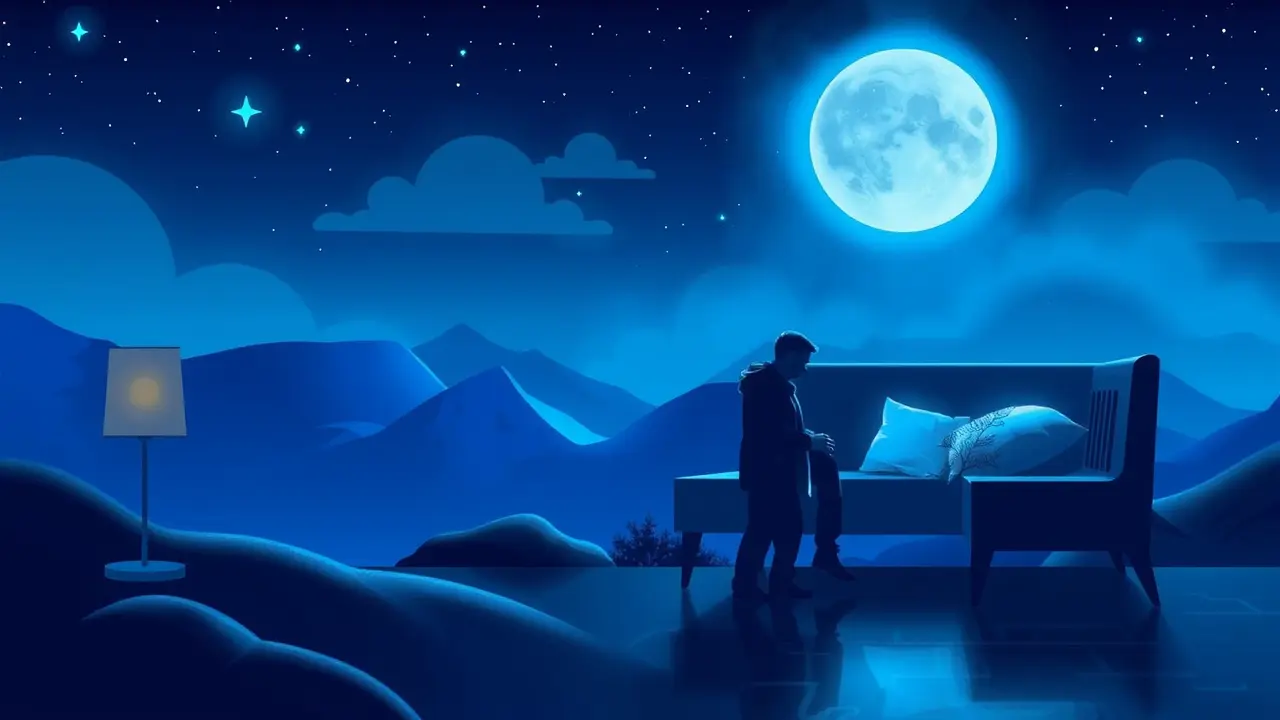Scientists Warn Brains Aren't Designed for Being Awake After Midnight
There’s a particular, almost universal, quiet that settles in after midnight, a time when the world seems to hold its breath and the familiar contours of our daily lives soften into something more nebulous and introspective. It’s in this liminal space, as the clock ticks past the witching hour, that a fascinating and somewhat unsettling transformation occurs within the human mind—a shift that scientists are now meticulously documenting, and one that resonates deeply with the stories people share in the quiet of the night.If you’ve ever found yourself awake at 2 a. m., staring at the ceiling as your thoughts spiral from a minor worry into a full-blown existential crisis, or impulsively deciding to make a large online purchase or send a text you’d never consider in the daylight, you’ve personally encountered what researchers are calling the 'Mind After Midnight' hypothesis. This isn't merely about feeling tired; it's a fundamental neurobiological recalibration.Our circadian rhythms, the internal clocks that govern our sleep-wake cycles, hormone release, and body temperature, are hardwired for diurnal activity. When we forcibly override this ancient programming, the consequences are profound.The prefrontal cortex, the brain's executive center responsible for rational decision-making, impulse control, and long-term planning, begins to power down, much like a computer entering a low-energy mode. Simultaneously, the more primitive, emotional regions of the brain, like the amygdala, become disproportionately active.This neural seesaw effect tilts our entire cognitive equilibrium away from cautious, logical deliberation and toward negativity, impulsivity, and risk-taking. It’s the neurological equivalent of taking the guard off duty and leaving the gates manned by a crew that’s jumpy, pessimistic, and prone to dramatic interpretations.This explains why a critical email drafted at 1 a. m.feels so urgently righteous, only to be regretted with a groan the next morning, or why a financial decision made in the lonely glow of a screen can seem so compelling yet is so often financially unsound. We are, in essence, becoming different versions of ourselves—versions that are more sensitive to threat, less capable of seeing the bigger picture, and more likely to seek immediate gratification to soothe a brewing internal discomfort.The data supporting this is sobering. Studies of shift workers, from healthcare professionals to factory operatives, consistently show higher rates of errors, accidents, and mental health challenges, directly correlated with their nocturnal schedules.Historical analysis even suggests that critical decisions made in the early hours during political crises or military standoffs may have been disproportionately influenced by this compromised cognitive state. But beyond the clinical data and the historical precedents, this phenomenon touches on something deeply human.In my conversations with people from all walks of life—the new parent soothing a baby in the blue light of a nightlight, the creative writer chasing a thread of inspiration, the student cramming for an exam, or the individual simply grappling with insomnia—a common thread emerges. The night strips away the distractions of the day, leaving us alone with our most unvarnished thoughts.It’s a time of heightened emotional rawness, where anxieties can amplify and loneliness can feel absolute. Understanding that this is not just a personal failing or a character flaw, but a documented, biological vulnerability, can be profoundly liberating.It reframes those 3 a. m.despair spirals not as personal truths, but as cognitive illusions manufactured by a tired brain operating outside its design specifications. This knowledge empowers us to create boundaries—to recognize that the mind after midnight is an unreliable narrator of our lives and to defer major decisions, difficult conversations, and existential reckonings until the sun has risen and our cognitive command center has been properly reinstated. It’s a lesson in self-compassion, a reminder that our brains, these magnificent organs, have their own rhythms and needs, and that respecting the ancient dialogue between light, dark, and consciousness is perhaps one of the most fundamental acts of care we can perform for ourselves.
It’s quiet here...Start the conversation by leaving the first comment.
© 2025 Outpoll Service LTD. All rights reserved.
